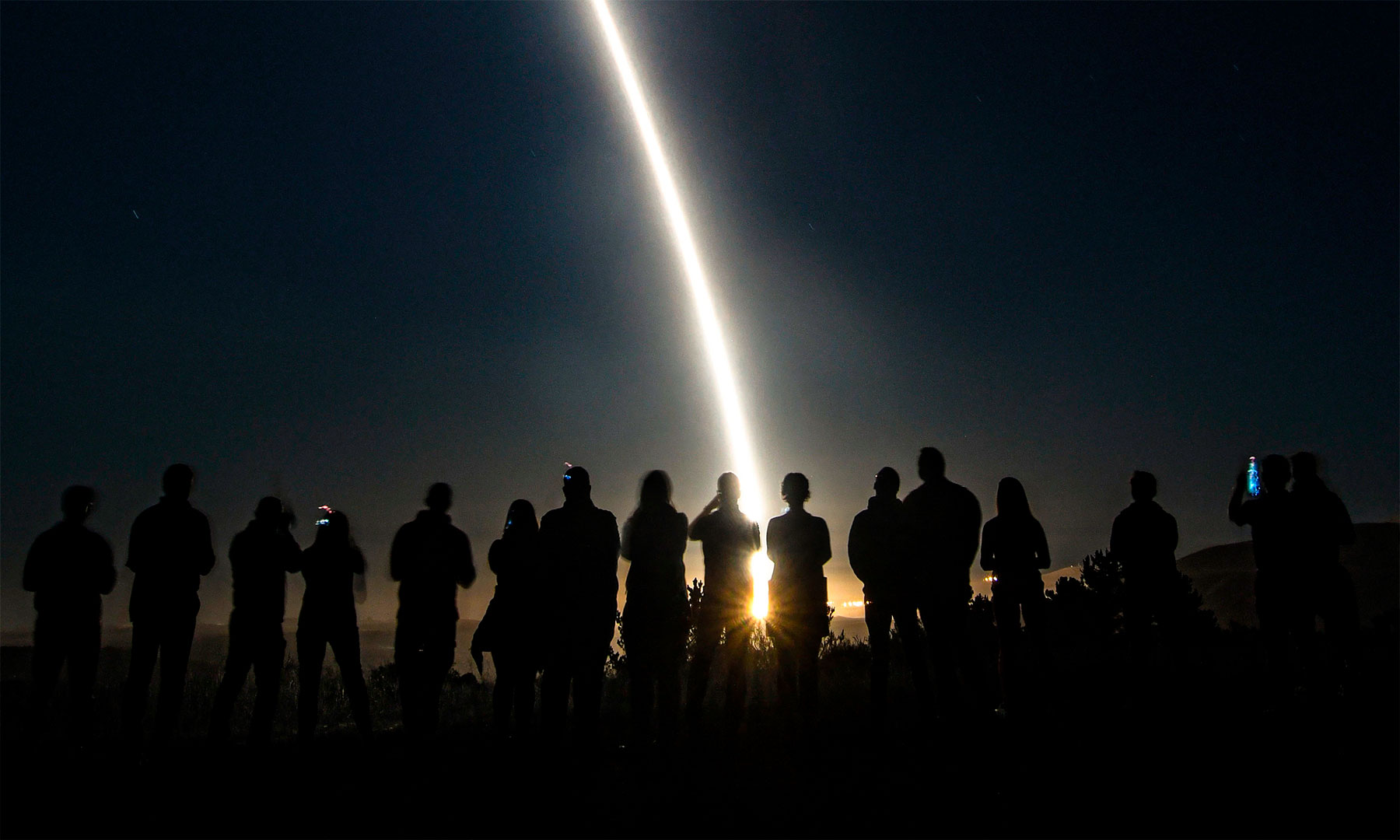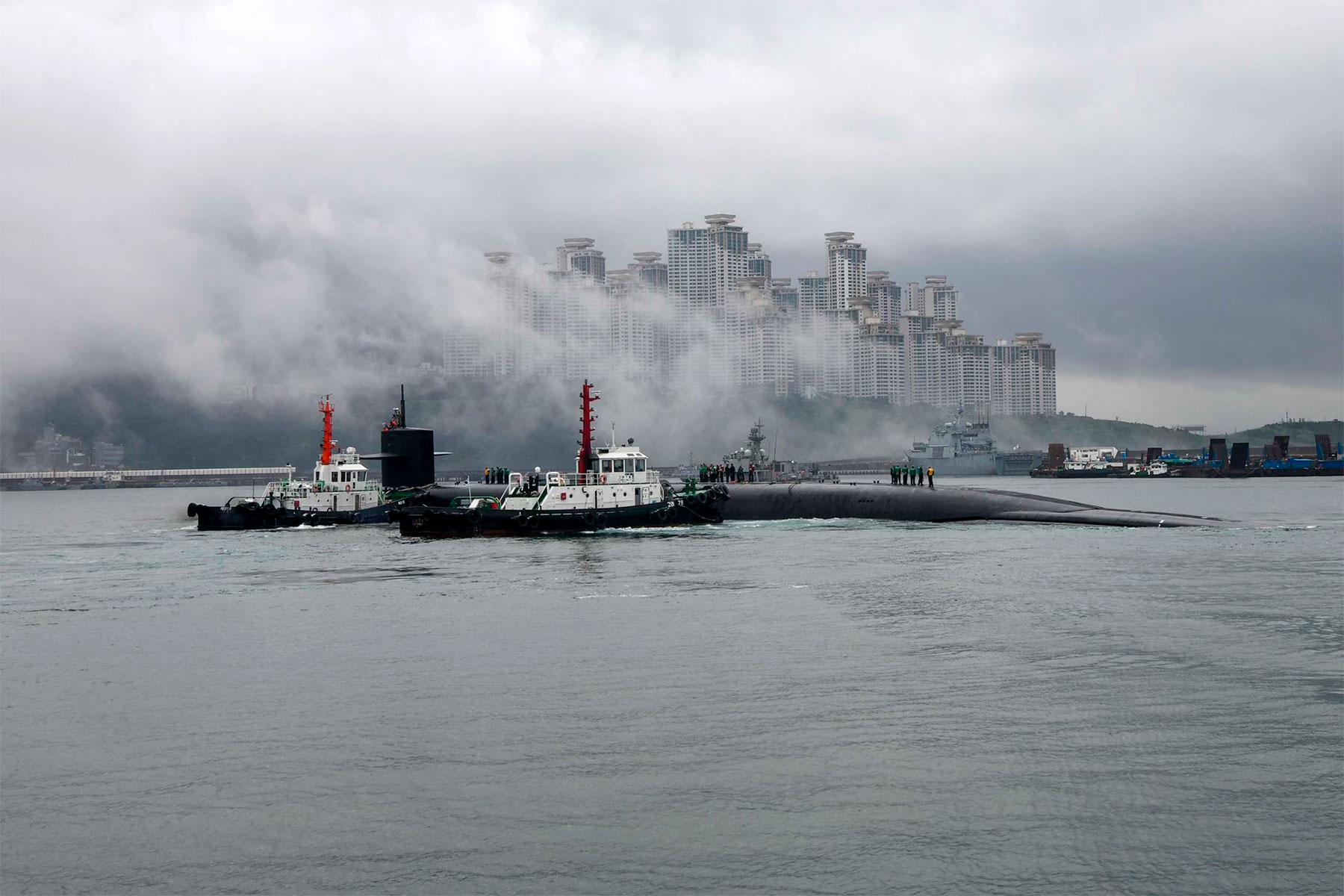Prepare for the Worst and Strive for the Best. Russia’s and China’s Perceptions of Developments in International Security
In
Login if you are already registered
(votes: 4, rating: 5) |
(4 votes) |
Professor, Fudan University, Beijing Club for International Dialogue, Senior Fellow
Ph.D. in History, RIAC Member
The conflict between Russia and Ukraine drags on. In response to France’s President Emmanuel Macron floating the idea of sending NATO troops to Ukraine, there has been a storm of indignation and a wave of disavowals of his divisive statement coming from other nations in the West. Many politicians and academics are concerned that the adversarial relations between Russia and the U.S. may drive up the risks of a further escalation of the conflict.
How do we resolve the crisis that has an impact on global strategic security? In early March 2024, during the China-Russia Dialogue 2024 in the city of Sanya, the Beijing Club for International Dialogue invited Andrey Kortunov, Academic Director of the Russian International Affairs Council, and Zhao Huasheng, Professor at Fudan University and expert with the Beijing Club for International Dialogue, to discuss the problems pertaining to international security, preventing a nuclear war, the rise of a new world order and prospects for the China-Russia relations.
The conflict between Russia and Ukraine drags on. In response to France’s President Emmanuel Macron floating the idea of sending NATO troops to Ukraine, there has been a storm of indignation and a wave of disavowals of his divisive statement coming from other nations in the West. Many politicians and academics are concerned that the adversarial relations between Russia and the U.S. may drive up the risks of a further escalation of the conflict.
How do we resolve the crisis that has an impact on global strategic security? In early March 2024, during the China-Russia Dialogue 2024 in the city of Sanya, the Beijing Club for International Dialogue invited Andrey Kortunov, Academic Director of the Russian International Affairs Council, and Zhao Huasheng, Professor at Fudan University and expert with the Beijing Club for International Dialogue, to discuss the problems pertaining to international security, preventing a nuclear war, the rise of a new world order and prospects for the China-Russia relations.
The world security situation: pessimistic or optimistic?
Andrey Kortunov:
Recent international developments give few reasons to stay optimistic about global security—at least, in the nearest future. Most of the ongoing conflicts in Europe, in the Middle East, in Africa and in other parts of the world are likely to continue and a couple of new ones can explode before too long. The short-term future of the global economy remains highly uncertain and prospects of a new cyclical recession cannot be ruled out. Due to the accelerating climate changes, threats of natural disasters are growing all over the planet. The forthcoming elections in the United States and in the United Kingdom, elections to the European Parliament as well as elections in India, in Indonesia and in many other places generate more uncertainties. Even if there is no further escalation of the Russian-Ukrainian or of a more general Russia-West confrontation, the crisis in Europe is doomed to spread instability and chaos across the world like a stone thrown into a pond creates ripples on the water.
Not all of the conflicts in various corners of the planet are directly related to the Russian-Ukrainian confrontation, each of these conflicts has its own roots, dynamics and beneficiaries. Still, the impact of what is going on in Europe is felt everywhere—in Gaza and in the West Bank, in Yemen and in Sahel, in the Korean Peninsula and in the South Caucasus. The US-Russian strategic arms control is completely stalled and the chances that it could be resumed are disappearing literally with every passing day. The non-proliferation regime is not in a much better shape, given the failure of great powers to resurrect the JCPOA agreement with Iran or to keep the North Korea’s nuclear and ballistic ambitions at bay. The US-China last year mini-détente remains very fragile and might turn into another cycle of escalating tensions. The global economy is exposed to high risks of further fragmentation, protectionism, trade wars and unilateral sanctions. These developments have a strong impact on international institutions, on climate change agenda, on global food and energy security, on transborder migrations management and on fighting international terrorism.
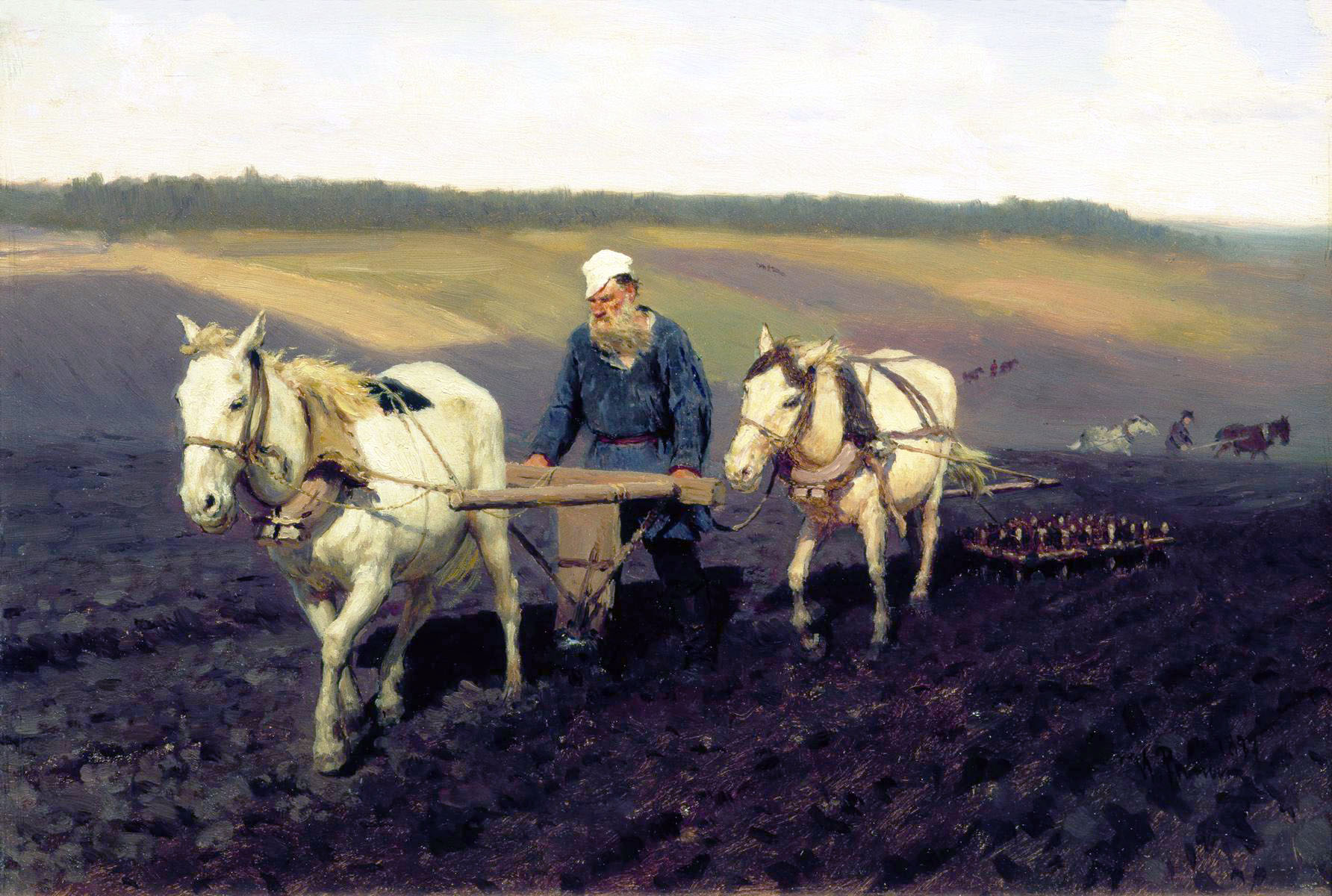
Hybrid War and Hybrid Peace
Zhao Huasheng:
There is no reason for optimism in the current security situation, which is not only the most dangerous time since the end of the cold war, but the most dangerous period since the cold war. People often raise the question of whether the world will enter a new cold war, but it is more appropriate to ask whether the world will enter a new hot war, because in the ongoing Russia-Ukraine armed conflict millions of soldiers have been fighting for two years, using almost all heavy weapons except nuclear weapons such as airplanes, tanks, artillery, warships, missiles, etc., and the U.S. and the NATO countries are already nearly directly involved. Under such circumstances, the talk about whether there will be a new cold war seems too pale. Some people regard the absence of two major military blocs, two major ideological systems and two major world markets as a sign that there is no new cold war, but that is only a form of expression, and the essence of the Cold War lies in non-military confrontation and confrontation between world powers.
Although the fate of the world is not predestined and cannot be directed towards fatalism, the current trend cannot but be a cause for concern.
The political, economic, diplomatic, technological, security, industrial and supply chain fragmentation of the world is deepening. The most important force driving this process is the West's division of the world into "democratic" and "totalitarian" camps, and the associated policies. China opposes and strongly resists this approach, but unity requires the cooperation of both sides, while division and antagonism can be created with the insistence of only one side.
All major countries are strengthening their armaments. Disarmament negotiations are a thing of the past, and the strengthening of armaments is the mainstream of all major countries. All states want to ensure security by strengthening armaments, but what it leads to is the promotion of an arms race, which only increases general insecurity.
Regional conflicts are spreading and are difficult to control. The armed conflict between Israel and Hamas not only has a strong impact on regional security and stability, but also has repercussions on international politics and world trade. The United Nations and international mechanisms are powerless to do anything about it, and the confrontation between the major Powers has deprived the regional conflict of effective international pressure and restraint.
At the same time, regional hotspots continue to remain hot, creating a large area of potential conflict points, like an active volcano that will erupt at some point, leaving the world in a state of anxiety.
The biggest crisis, of course, is the Russia-Ukraine military conflict. The conflict has been going on for 2 years and still sees no end in sight, and the intensity of the battle is increasing and the scope of the fighting is expanding, which means that the conflict has the potential to escalate. Once the Russia-Ukraine conflict gets out of control, all NATO countries will be caught up in it, and a new world war will be hard to avoid.
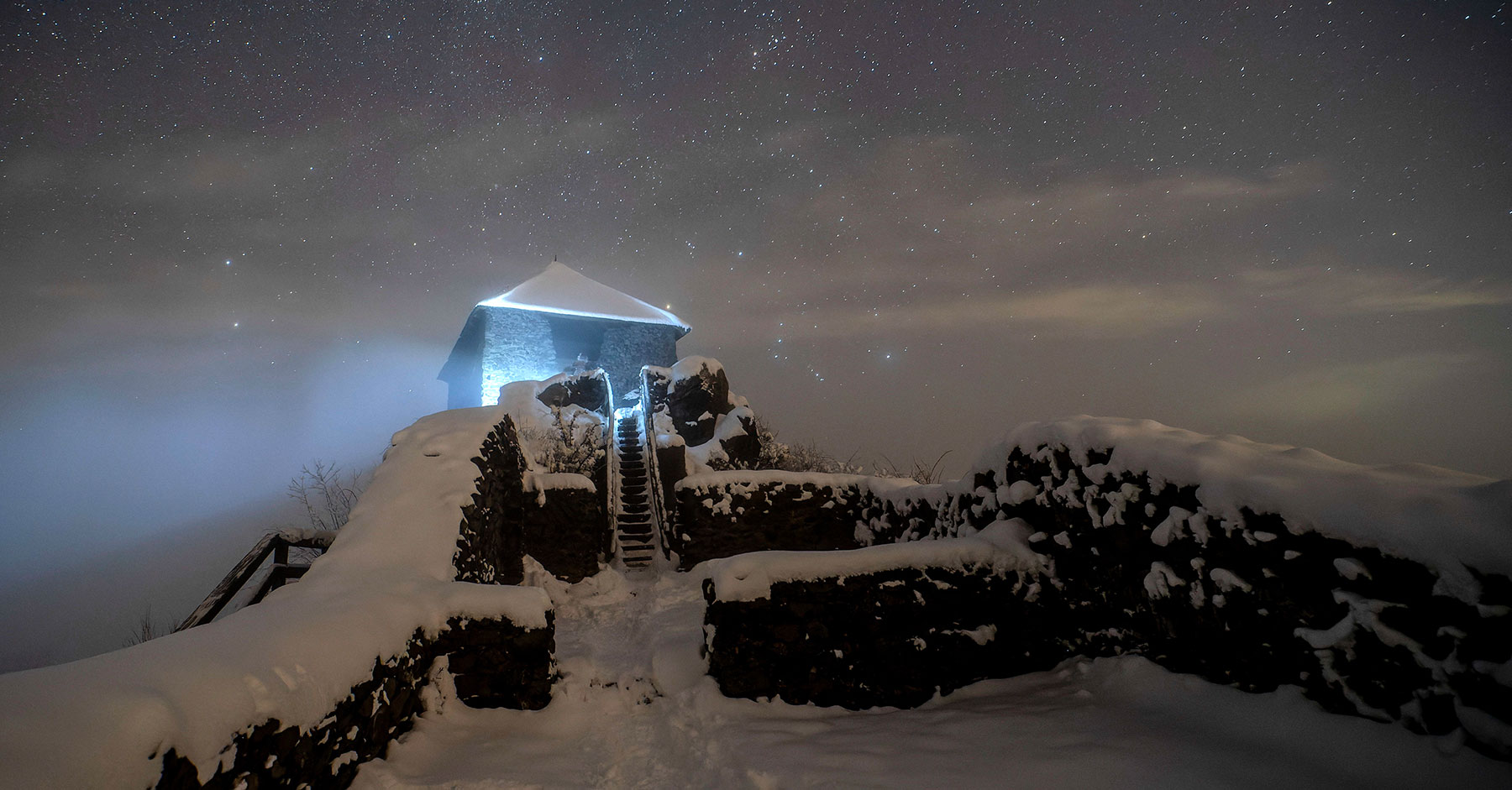
The International System between Crisis and Revolution
How is the current security situation different compared to the crisis before?
Zhao Huasheng:
After the painful experience and lessons learned from the two world wars of the last century, after the establishment of a series of international systems and mechanisms, after the unprecedented closeness of international cooperation and interconnection among countries, after the promising period of peace and cooperation among the great powers in the post-cold-war period, and under the conditions of a greatly progressed civilization in society, an unprecedented increase in wealth, and the rapid advancement of science and technology, to put it simply, it cannot but be difficult to understand and accept that, after mankind has entered the twenty-first century, which is the most civilized and developed century, it is moving towards the barbaric wars of traditional fratricide and to the brink of new world wars that do not spare the destruction of human civilization. What is the reason for this "atavism" of human behavior? This is a major issue on which the international community needs to think deeply and draw lessons, because if this problem cannot be solved now, it means that it will happen again in future.
Every major security crisis has its own particular circumstances and dynamics, and the Russian-Ukrainian conflict is no exception. A particularly disturbing fact is that in Russia, Ukraine, Europe and the United States, the voices in favor of continuing the war are much louder than the voices that want it to end, there is no strong political and social demand for peace on all sides. Neither side wants to back down. All the sides are seriously preparing for a bigger war. Both sides believe that this will create a strong deterrent to the other side dare not move rashly and avoiding a larger war. But as history has shown time and again, including the history of World War I, it often produces the opposite effect, but rather irritates the other side even more, leading to an escalation of the crisis. Both sides also believe that they seek to learn lessons from the history of what happened in World War II in order to prevent a new world war, but the two sides are learning different lessons. Europe believes that connivance was a major reason for the occurrence of World War II, and therefore must resist Russia's first steps. Russia, on the other hand, Russia, thinks that the failure to respond forcefully to the proximity of hostile forces to the Soviet Union's borders prior to World War II placed the Soviet Union under a direct threat of aggression. Thus, the lessons both sides learn from the history do not lead to peace, but to conflict. The most fundamental problem is that there is a profound misunderstanding, or a complete lack of mutual understanding, on both sides. Russia sees NATO's expansion to Russia's borders as a direct threat against Russia, and the special military operation is aimed at eliminating this threat; while NATO sees the eastward expansion as a guarantee of security in Europe, and that if Russia wins in Ukraine, Europe will be the next target of its strikes, and therefore NATO must support Ukraine, keeping Russia out of Ukraine.
Whatever the special features of the Russian-Ukrainian conflict, like all wars it has caused enormous suffering on both sides, with hundreds of thousands of military personnel and civilians killed and wounded, cities and houses reduced to rubble, the accumulation of hundreds of years of hard work destroyed, and the creation of lasting and even indelible hatreds between peoples. The continuation and escalation of the conflict can only lead to deeper disasters for the Russian and Ukrainian peoples, and therefore the cessation of the armed conflict and the prevention of escalation are the most desirable path for both Russia and Ukraine to minimize losses and suffering.
Andrey Kortunov:
The humankind has seen hard times more than once before, but the world has not come to an end and the international system has always demonstrated a remarkable flexibility and adaptivity. One could refer to the 2008–2009 global financial crisis, or to the Arab Spring of 2011, to the migrant flood in Europe in 2015 or the COVID-19 pandemic in 2020–2022. The international system managed to survive through many lean times and to absorb numerous shocks. However, all of these shocks, staring with the Soviet disintegration in 1991 and with the 9/11 terrorist attacks on US in 2001 were largely limited to either one dimension of global politics or to one region of the world. Conversely, the ongoing crisis in Europe is rapidly acquiring a truly global scale and a multidimensional nature.
Furthermore, during previous disasters there has always been a strong chance that great powers could quickly get together, put aside their disagreements and work hand in hand with each other in handling common threats and challenges. This is no longer the case—under the current divisive geopolitical circumstances great powers are much more likely to work against one another than together with each other. The international system is rapidly sliding down toward a dangerous zero-sum game (some would even argue that this is a negative-sum game) making it exceedingly difficult to come to a mutually acceptable compromise.
Why did the end of the cold war lead to even greater regression in the international community?
Andrey Kortunov:
It would be wrong to argue that the end of the cold war did not generate any peace dividends. I am old enough to remember early 1990s, when many of us believed that the danger of a nuclear war or even a conventional wat between great powers had been eliminated forever. Many important agreements were signed to consolidate the new realities—the Paris Charter, the Conventional Forces in Europe Agreement (CFE), the NATO-Russia Founding Act, and so on. There was a surge of trade, investments, tourism and civil society interaction between the East and the West. Unfortunately, it turned out that the two sides had very different perceptions about very fundamental dimensions of international security and global governance.
In the West, they assumed that the future international system should have at its core primarily Western institutions—like NATO and the European Union—that would gradually expand and absorb former socialist nations of Central and Eastern Europe. The assumption was that the West would define the rules of the game within the new system, while the Rest would have to accept these rules unconditionally. Of course, the Rest, and Russia in particular, found it difficult to accept such an arrangement. One should also note that over last couple of decades the global balance of powers shifted in favor of non-Western nations, in particular, in favor of China. This critical shift had to be reflected in the international system, but the West, and the United States in particular, turned out to be unprepared for it and unwilling to recognize and to accept the shift.
Zhao Huasheng:
As far as Russia and the West are concerned (Russia and Ukraine are a different pair of relationships with a different set of circumstances), the two sides' explanations of why the Russian-Ukrainian conflict happened are two completely different narratives.
Russia blames it on NATO enlargement. From NATO's perspective, it believes that the further east it pushes, the safer for European countries will be. Therefore, despite Russia's incessant warnings, NATO has pushed ahead with five rounds of enlargement to include all three Baltic States and Central and Eastern European countries, and is still not ready to stop there. It's not that NATO hasn't heard Russia's warnings, but it believes that a weak Russia can do nothing about it and can only accept the fait accompli. Russia has only two killer weapons in its strategic toolbox: energy and military power. But the use of energy weapons is also self-inflicted wounds for Russia, making it difficult to use them on a large scale, while the use of weapons of war seems unimaginable in the post-Cold War era.
From Russia's perspective, every step NATO pushes eastward brings the security threat to Russia closer. It is clear that the next targets of NATO enlargement will be Ukraine and Georgia, an issue that was on the agenda at the 2008 NATO summit in Bucharest, which means that NATO's military power will be pushed right up to Russia's borders. Russia feels that it can no longer retreat and has to get ahead of the game and take Ukraine.
The United States and Europe, for their part, see the root cause of the conflict is Russia's invasion of Ukraine, its seizure of Ukrainian territory in violation of international law. The West sees the roots of Russia's behavior in the restoration of imperial ambitions and traditions of territorial expansion.
Viewed objectively, the process that drove the Russo-Ukrainian conflict was complex, not because of a single cause or a unilateral one, but it was shaped by the intersection and interaction of many factors. It was the result of the long-term accumulation and outbreak of conflicts between Russia and the West. The Russian and Western explanations each take an angle, each has its own logic, each has its own facts and grounds, but each also has its own Achilles' heel. They are completely different and mutually exclusive narratives based on different positions, serving different goals and making consensus impossible.
Objectively speaking, the process of promoting the Russian-Ukrainian conflict is complex, not because of a single reason, nor because of unilateral reasons, it is formed by the interleaving and interaction of many factors. It is the result of the long-term accumulation and outbreak of contradictions between Russia and the West. The Russian and Western interpretations each take a different angle, each with its own logic, each with its own facts and basis, but each with its own Achilles' heel. They are completely different and mutually exclusive narratives based on different positions, serving different goals, and making consensus impossible.
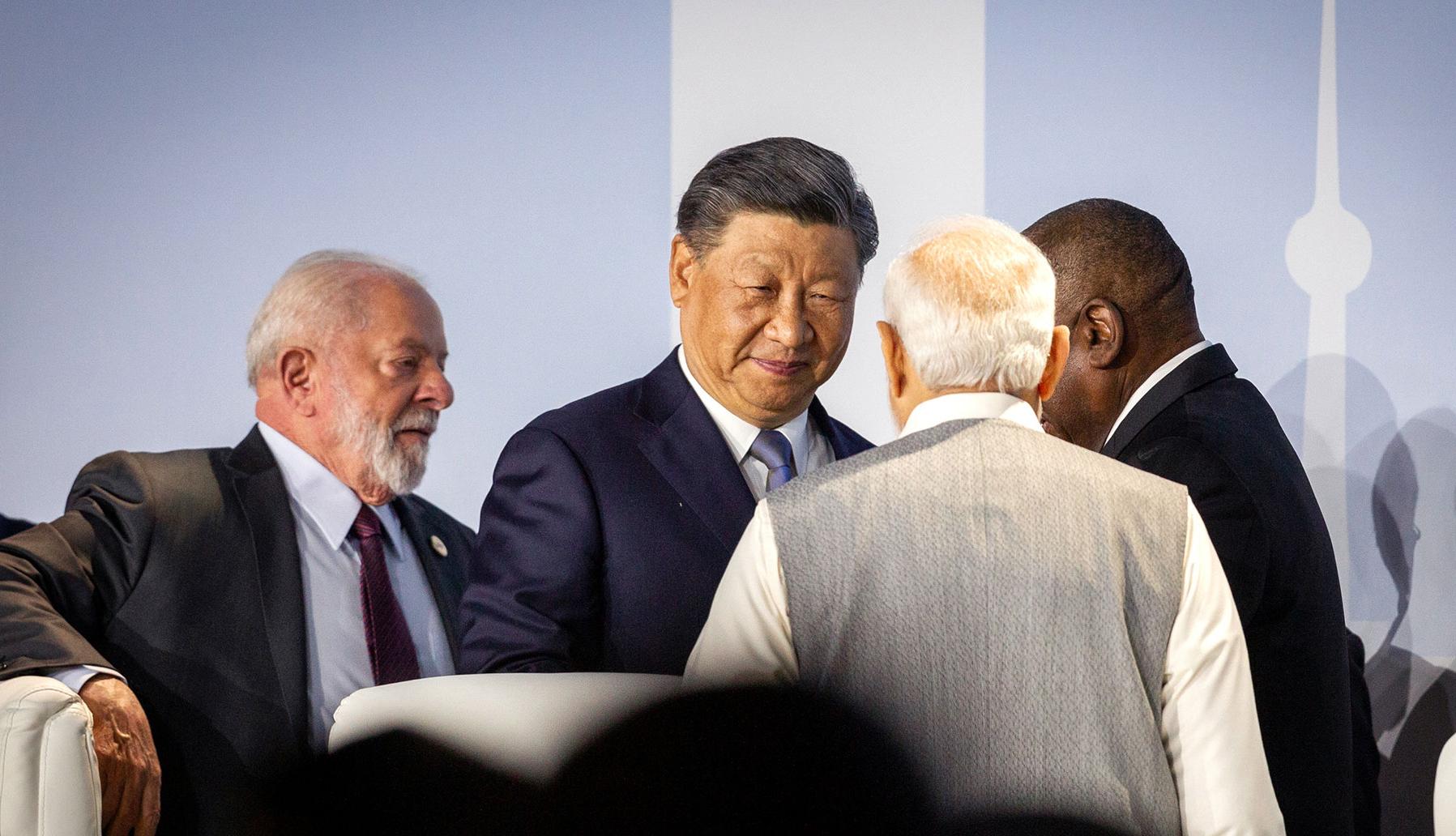
Peace Initiatives on Ukraine: The Barely Audible Rustle of Peace
Is the risk of nuclear war real?
Zhao Huasheng:
It is not an exaggeration to say that the current situation is comparable to, or even more dangerous than, that of the Cuban Missile Crisis of 1962.
Some people concluded that the Cuban missile crisis did not develop into a nuclear war, the most important factor is that the leaders of the Soviet Union and the United States, that is to say, Nikita Khrushchev and John F. Kennedy, who had a sober understanding of the consequences of a nuclear war, which was also recognized by Khrushchev himself. Now, since nuclear weapons have not been used for nearly 80 years since Hiroshima-Nagasaki at the end of World War II, people have the illusion that nuclear weapons will never be used, and their fear of nuclear weapons has diminished.
The Cuban missile crisis lasted 13 days, it was highly tense, but the time was short, just a crisis management, and now the United States and Russia are in a state of proxy war, this war has been going on for two years, and there is no end in sight. I believe that neither Russia nor NATO wants a nuclear war, the problem is that war may not depend on the subjective desire to push the situation toward a nuclear war. The conflict between Russia and Ukraine, involving the world's two largest nuclear-armed states, has been shadowed by nuclear specter since its outbreak. The course of the war is unpredictable and contains the possibility of various accidents, and as long as the military conflict in Ukraine continues, the nuclear risk will not be eliminated and may become more and more serious. It should also be noted that this conflict is no ordinary event for Russia and the United States, but a strategic gamble with stakes so high that even the use of nuclear weapons cannot be completely off the table.
With the miniaturization and precision of nuclear weapons, the idea that tactical nuclear weapons can be used on the battlefield has become more acceptable, according to which the use of tactical nuclear weapons will not lead to nuclear war or the destruction of humankind. Such thinking also increases the risk of nuclear war.
The situation in the nuclear field is not reassuring either. The nuclear arms control regime between the United States and Russia has almost completely collapsed, with only the New Strategic Arms Reduction Treaty remaining, but Russia has also stopped implementing it. A new nuclear race between the United States and Russia is being resumed, restrictions on nuclear testing have been removed, military exercises including the possible use of nuclear weapons are frequent, the danger of the nuclear weaponization of space continues unabated, and there is a growing potential for the proliferation of nuclear weapons.
Although nuclear war is a low-probability risk, its prevention cannot be overemphasized, given its unforeseeable and serious consequences. Nuclear war cannot be tested, it is tantamount to opening Pandora's box, which can no longer be closed, the moral taboo formed by the international community for 80 years will be broken, the most powerful deterrent tool relied on by major powers to prevent world war will no longer exist, and there would be nothing to prevent mankind from going further and further down the road of war.
Andrey Kortunov:
I am afraid that it is. We often take it for granted that since a global nuclear war is likely to destroy the human civilization, nobody is going to launch it. However, history teaches us that a war can start even if neither side wants to launch it. For example, no nation in Europe was ready or willing to engage in the first world war that literally devasted the whole continent and put an end to four great empires. A war can start due to a technical or a human error, as a result of an inadvertent escalation or because of a wrong assessment of the other side intentions. The situation today is particularly dangerous since most of communication lines between Russia and the West are completely broken or frozen and the two sides cannot even discuss basic confidence building measures. To make things even worse, we now hear a lot of statements from experts and even some politicians suggesting that a nuclear exchange can be somehow controlled or limited. In my view, this is a highly questionable and dangerous assumption that should not be put to test under any circumstances.

Russia-West: Rising Stakes
What are the worst prospects and how to prevent it from happening?
Andrey Kortunov:
My worst-case scenario is that we are going to see more and more Western engagement into the Russian-Ukrainian conflict, which will ultimately turn NATO into a direct party to the conflict. Some Western leaders, like French President Emanuel Macron already entertain such an option, at least, in principle. If there is a large-scale NATO-Russia military confrontation in the center of Europe, it would be quite hard to keep it at the conventional level—the losing side would be tempted to consider using at least tactical nuclear systems to change the momentum of the conflict. Once the nuclear threshold is crossed, there will be no way to prevent a further escalation.
Of course, the best way to step back from the point of no return would be to terminate the conflict in Europe and `to come to a general settlement on the future European security system. However, in the immediate future it does not look like a realistic perspective. If there is no way to stop the bloodshed, there should be a way to prevent a further escalation. In particular, one might get back to the P5 statement of January 2022 on nuclear war that nobody can win and, therefore, nobody should launch. Any further P5 steps on strategic stability enhancing would by highly appropriate. Right now, there is no hope in restoring the traditional US-Russian strategic dialogue as it existed over the last half a century, so we have to consider even the very limited opportunities that might remain still open on the multilateral track.
Zhao Huasheng:
There are many serious challenges facing the world, and from the perspective of international security, in the current situation, the worst scenario is possible escalation and loss of control of the conflict between Russia and Ukraine. Escalation implies more uncertainty and greater risk, and it also means that it is easier to get out of control and drag Russia and NATO toward direct war. In fact, both Russia and NATO are seriously preparing for this. If Russia goes to war with NATO, it will likely turn into a new world war, which will most likely develop into a nuclear war. In a certain sense, a new world war is almost equivalent to a nuclear war, a world war will lead to a nuclear war, and a nuclear war will certainly be a world war.
Russia, the United States and Europe are the major links in the international political, economic and security framework, which is worldwide, and if it collapses,
Some people say that the conflict between Russia and Ukraine is a European affair and has little to do with other regions. That's not true. Russia, the United States and Europe are major links in the international political, economic and security framework, and they are worldwide. If they collapse, it will surely cause worldwide devastation and wreak havoc on other countries and regions, and there is no room for cold-eyed observation and solitude. Both the First and the Second World Wars started as intra-European conflicts, which in turn dragged the whole world into a world war. It is not impossible for history to repeat itself.
This is a particularly fragile time in the international security situation. The collapse of the world order, the fierce confrontation between major countries, the failure of international institutions and the inefficiency of global governance make it easy for existing security issues to develop and for new regional conflicts to occur. In the worst case, it could lead to a "chaotic" world.
There is also a worst-case scenario, namely, the outbreak of hot spots in North-East Asia, the South China Sea and the Taiwan Strait. If these hotspots break out, it will bring a huge impact to the whole world.
The Chinese also often say, "Prepare for the worst and strive for the best." Although the situation is not optimistic, we should still make our best efforts to strive for the best possible outcome.

Escalation Signaling in Ukraine and Its Implications for the Strategic Russia-US Relationship
What will the future international order look like in your eyes?
Zhao Huasheng:
The transformation of the international order in the twentieth century was marked by three world wars, namely, World War I, World War II, and the Cold War—which was also, in a sense, a special form of world war. The Versailles system emerged after World War I, the Yalta system was formed after World War II, and the so-called liberal international order began to prevail after the end of the Cold War. All three of these world wars destroyed or broke the original international order and shifted the world onto the track of a new international order.
So, will the ongoing Russia-Ukraine conflict give rise to a new international order?
History has a general trend, which determines the basic direction of world development. There is as an old Chinese saying: "The great trend of the world is when it is united too long, it will be divided, and when it is divided too long, it will be united".
I think the general trend of the current world is “divisions”.
After the Ukrainian crisis, the world will become more divided. In the coming period, "separation" will be the basic feature of the world's general trend, and this trend is difficult to reverse in the short and medium term. The international community is polarizing in terms of politics, diplomacy, security, finance, the economy, the industrial chain and even technological standards, and therefore a unified international order will not be formed.
A totally new international order will not emerge soon, let alone a unified international order in the short term. Neither the West nor the non-West will be able to establish a unified international order in their own conception, and the emergence of a relatively unified and holistic international order will only be possible in the distant future. What is certain, however, is that the Ukrainian crisis has dealt a severe blow to the post-cold-war international order, making it even more fragmented.
Unlike the World War I, the World War II and the Cold War, the outcome of the Russia-Ukraine conflict will be very different. At least for the time being, the Russian-Ukrainian conflict is not a full-scale war, and there may be defeats or victories on the battlefield, but there will be no outright winners or losers as nations, and neither Russia nor the United States of America and Europe will be able to defeat each other completely, and neither will be able to impose their will on the other. They will both remain influential and important parts of the international community, and it is impossible to deny each other's existence.
More importantly, besides Russia and the West, there are other important forces in the world whose role in the construction of the future international order is also enormous and essential.
The formation of international order in the 21st century should go out of the path of the 20th century. As it was said above, all the transformations of the international order in the 20th century were the result of world wars, and the 21st century should not be on this path. In today's world, the way to build an international order is better to evolve than to revolutionize, better to be peaceful than to be violent, better to reform than to create a new stove, better through coordination and dialogue than through confront. A just and fair international order will not come naturally; it requires cooperation and joint efforts by the international community.
China and Russia have similarities and differences in the ways and means of building the future international order, but the important thing is that the two countries have the same views on what the future international order should be, that is, a multipolar world, political equality, no unipolar hegemony, safeguarding the international system with the United Nations as the core and international order based in international laws.
Andrey Kortunov:
Today is not the first time if history, when the international system faces the prospect of a radical transformation. Fundamental transformations of the international system usually came as a result of major wars between leading actors—be it the Thirty Years war, the Napoleonic wars, the first and the second world wars. The outcomes of these large European or even global conflicts allowed to fix a new balance of powers, and the victorious actors were able to set new rules of the game for themselves and for the rest of international players.
The XXI century reality is that great powers can no longer afford to wage classical wars between themselves since such wars may well lead to a complete annihilation of the humankind. Instead, they prefer to go for proxy wars (like the one that the West now wages in Ukraine against Russia) or economic and technological wars (like the one that the United States has launched against China). Such wars may last for many years and even decades without defining the ultimate winner. Therefore, a new balance of powers—in Europe, in Asia or in the world at large—is likely to remain uncertain, ambiguous and contested for a long time. Thus, the new world order is unlikely to become a product of another Big Deal of Grand Bargain between major players, it is more likely to emerge as a combination of specific incremental multilateral arrangements. In this sense, institutions like BRICS or SCO, attempts to regulate AI and GMOs, efforts at preserving WTO or at democratizing the global financial system deserve careful attention.
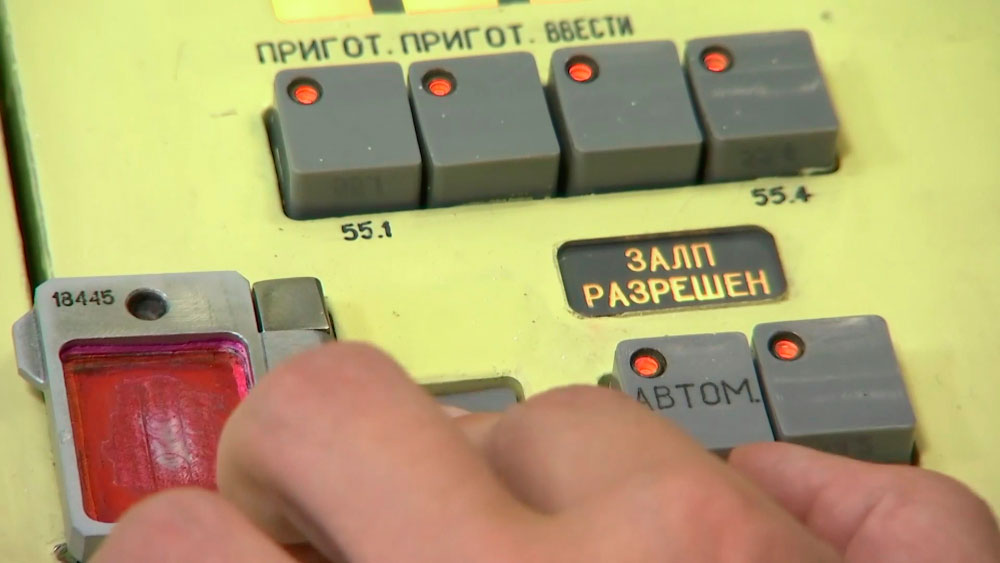
Nuclear Metamorphoses
How to develop Sino-Russian relations under new circumstances?
Andrey Kortunov:
An ambitious, but not unattainable goal would be to move from more or less basic cooperation to more advanced collaboration. The difference between the former and the latter might look insignificant or even irrelevant, but it should not be overlooked. Cooperation essentially means that the two sides assist each other in support of other side’s goals. Collaboration implies that the two sides have a shared ownership and interest in a specific outcome of their joint efforts. Cooperation does not assume a common vision, while collaboration does.
What does this mean for the China-Russia relations? Let us take, for example, their economic dimension. 2023 was a very successful year for bilateral trade that has already surpassed the psychological mark of $200 billion. However, numbers might be delusive: the overall financial performance of bilateral trade depends to a large extent on the fluctuations of global prices on oil, gas, coal, timber and other commodities that now amount to 70% of Russia’s exports to China. On the other hand, though most of China’s exports to Russia are denominated in renminbi rather than in dollars, possible shifts in dollar-ruble exchange rates might have a significant impact on the absorption capacity of Russian markets. To move from cooperation to collaboration would mean not only to diversify bilateral trade, but also is to compliment this trade with launching numerous and diverse joint production chains. That means that foreign direct investments, which now constitute a very modest part of the bilateral cooperation, should get a higher priority than traditional trade.
The same dilemma between cooperation and collaboration exists in the field of China-Russia humanitarian interaction. Next year bilateral tourist flows are likely to surpass the pre-pandemic levels. The overall number of Chinese tourists in Russia in 2024 may well rise to 2–2.5 million, which would be a truly remarkable accomplishment. The numbers of Russian tourists going to China is also likely to grow fast. Still, tourism per se has only a limited value as a means to stabilize the relationships. One might recall that on the eve of the COVID-19 pandemic the annual flow of EU tourists to Russia surpassed one million, and the number of Schengen visas issued to Russians in 2019 exceeded four million. These large-scale flows of people, however, did not prevent an outburst of “cancelling Russia” sentiments in Europe in 2022, including attempts to “cancel” the Russian culture at large and to impose the burden of “collective guilt” on all of the Russian population. Moving from cooperation to collaboration in the humanitarian field should mean complimenting tourism with bottom-up, problem focused joint initiatives of civil societies in a broad variety of areas—from climate change and biodiversity preservation to community development and gender equality. Working together at the grassroots level on specific projects should help to weave the tissue of social interaction that is absolutely indispensable for a stable long-term relationship.
Zhao Huasheng:
In the current situation of rapid changes and volatility in the international situation, it is particularly important for China-Russia relations to maintain stability, avoid drastic changes and prevent sharp ups and downs. The sharp ups and downs will eventually cause serious damage to Sino-Russian relations, while maintaining stability will ultimately benefit them. Stability is the basis for long-term cooperation between China and Russia, a condition for maintaining trust between the two countries, and a prerequisite for reliably anticipating their future.
An important feature of today's international politics is that ideological factors are rising, and emotional elements tend to be prominent. China-Russia relations should remain sensible and rational, and while the existence of emotions and sentiments is natural and normal, there is a need to prevent emotionalism and avoid substituting and dictating policies with emotions.
Drastic changes in the international situation are often accompanied by high-stakes choices, which pose serious challenges to all countries. Under such circumstances, it is necessary to maintain strategic focus and seize strategic opportunities when they arise, but not to move to opportunism. The interests and benefits of the moment are also important, but should not lose the stable diplomatic foundation, and should not only seek the benefits of a single event at the expense of the overall and long-term strategic interests.
The mutual policies of China and Russia should be as predictable as possible and the factors of randomness and uncertainty should be minimized. One of the important conditions for predictability is the consistency and continuity of policy. At the same time, maintaining institutional and continuous communication and consultation is also extremely important. There will also be misunderstandings between partners, to avoid misunderstandings, the best way is to be frank and direct, and not to rely too much on "behavior language" or too implicit expression, let the other side to guess and experience, because of cultural differences, it will often backfire.
China and Russia are two major countries with common interests, but each has its own special interests and diplomatic environment. In the international field, both countries are cooperative partners, but they also need to retain policy space for flexibility, so that the international cooperation between the two countries can be flexible, and cannot be completely consistent without conditions. It should be said that the two countries have already established mutual understanding in this regard, which is also an important reason for the resilience of bilateral relations.
The fact that Sino-Russian relations are normal state relations has given the two countries the greatest legitimacy, reasonableness and free space to develop cooperation, and within the bounds of normal state relations, the two countries can develop all kinds of cooperation. Although there are many words to describe Sino-Russian relations, I think that stable state relations, expanding cooperation, maintaining political trust, mutual security and reliability, effective international coordination, mutually beneficial trade and economic cooperation, and friendly and sympathetic civil society are the best features of Sino-Russian relations.
First published in Chinese in the Guancha.
(votes: 4, rating: 5) |
(4 votes) |
Russia’s preservation of its statehood and sovereignty again becomes the main stake of the conflict. The statehood of Ukraine is another stake
Nuclear MetamorphosesRestoring the arms control foundation will make it possible to expand the dialogue to other types of weapons and military technologies, gradually involve third nuclear powers in the process, and strengthen nonproliferation regimes for weapons of mass destruction. Regardless of the changing world order, this is the only way to prevent the impending collapse of international security
Hybrid War and Hybrid PeaceThe termination of hybrid wars and their transformation into a hybrid peace is the fundamental problem of modern diplomacy
Peace Initiatives on Ukraine: The Barely Audible Rustle of PeaceIn the meantime, the guns continue to rattle and the voices of diplomats are hard to hear, especially from faraway lands
A Dangerous Gamble: The Russia-American Nuclear Game in the Ukraine CrisisAs the world's two super-nuclear powers, the relations of Russia and the U.S. are inseparable from nuclear risk
The International System between Crisis and RevolutionWorld politics is fast degrading into a zero-sum game
Escalation Signaling in Ukraine and Its Implications for the Strategic Russia-US RelationshipEscalation signaling is a tremendously difficult task that allows for some flexibility but also raises the risks of further escalation
A Monsoon Instead of a Gentle Breeze: Creeping Nuclearization in the Asia-PacificVarious approaches taken to address the nuclear question within the Asia-Pacific reemphasizes the region’s complex role in international affairs



